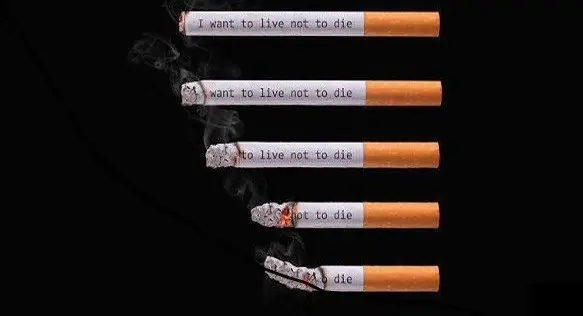Quitting Smoking – Determination, Planning, and Changing Your Routine can Help
Smoking. We know the facts. The science is in and many people have personal horror stories attributed to a friend or family member that has lost the battle with lung cancer after a lifetime of nicotine addiction. Whether its to save money by not having to buy heavily-taxed tobacco products or to preserve one’s health, almost everyone who is a smoker has tried to quit at some point in time. Often, these people make the effort more than once only to fall victim to the pressures of the stress of daily life and the powerful cravings nicotine induces.

So, how does one finally kick the habit? The first step is actually deciding to do something about it. Addiction is a powerful force and must be met with an equally-equipped will to overcome. Half-hearted attempts at curbing addiction rarely pan out successfully.
Once the resolution has been firmly decided, planning is key. While procrastination is seductive, it is probably not in your best interest to attempt to quit smoking during finals week at school or while you prepare for a high level business meeting. If possible, avoid coinciding your efforts with intense, high-pressure events or activities. There will be withdrawal symptoms regardless of when you choose to break the streak, but stress is an excellent excuse to just have that one last smoke, and that is a scenario that is to be avoided.
Plan your distractions. What are some activities that you can do to get your mind off of your cravings? Some people hold a pen or pencil in the manner that they would a cigarette. Others squeeze a stress ball to relieve pressure and curb nervousness. Healthy alternatives to smoking are the preferred methods of distraction. Keep a bottle of water by your side or on your desk and take a few sips every time you feel the need to smoke. Celery sticks or carrot sticks can keep that smoking hand busy while also providing an added serving of vegetables to your diet. Get creative. The name of the game is trying to train your mind and body to replace an unhealthy habit with one that is, at best, healthy or at least not as harmful as smoking.
Here are some widely accepted tips for helping you quit smoking for good:
– Change your routine. Smoking, like all habits, is routine-based. Set your alarm a little earlier and do a few sit-ups instead of having that first smoke. Get into work a little earlier and eat your breakfast there instead of at home. Walk the dog a little bit longer. Change the timing of your breaks at work. Do whatever you can in an effort to reset the clock inside you that tells you when it’s time to smoke.
– Avoid places where other people will be smoking.
– Ask friends who smoke for understanding and courtesy during this challenging time. If they refuse to extinguish around you or goad you into having a smoke with them, make an effort to avoid them.
– Create a support system. Tell your family you are quitting and why. Encourage them to help you stay on track and hold you accountable.
– Take advantage of quitting agents such as nicotine gum and patches. While some prefer to go cold turkey, others choose to avoid the severity of withdrawal symptoms by weening themselves off gradually. You may have to experiment to see what works best for you, but follow the directions and understand that no method is without its challenges.
– Live past the relapses and enjoy the small victories. People rarely quit smoking and never look back. Relapses are extremely common when dealing with addictive substances. While they should be avoided at all costs, don’t allow yourself to fall back into your habit and start over. Plan a party or special dinner to celebrate personal milestones. These will give you goals to look forward to achieving and allow you to share your pride and accomplishments with those closest to you.
Lastly; do your research. Countless people have quit smoking successfully and they all have a story. Understand why nicotine is such an addictive substance and do some research into what other people have done to remove it from their lives. Knowledge is power, and in the information age there is no excuse to not find yourself educated and armed to the teeth.



